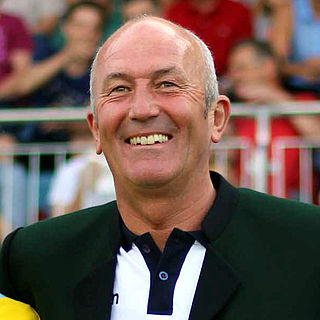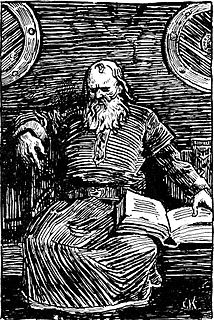A Quote by Johann Wolfgang von Goethe
It is commonly the personal character of a writer which gives him his public significance. It is not imparted by his genius. Napoleon said of Corneille, "Were he living I would make him a king;" but he did not read him. He read Racine, yet he said nothing of the kind of Racine.
Related Quotes
There are three infallible ways of pleasing an author, and the three form a rising scale of compliment: 1, to tell him you have read one of his books; 2, to tell him you have read all of his books; 3, to ask him to let you read the manuscript of his forthcoming book. No. 1 admits you to his respect; No. 2 admits you to his admiration; No. 3 carries you clear into his heart.
A boy is a long time before he knows his alphabet, longer before he has learned to spell, and perhaps several years before he can read distinctly; and yet there are some people who, as soon as they get on a horse, entirely undressed and untaught, fancy that by beating and spurring they will make him a dressed horse in one morning only. I would fain ask such stupid people whether by beating a boy they would teach him to read without first showing him the alphabet? Sure, they would beat him to death, before they would make him read.
The thought of these vast stacks of books would drive him mad: the more he read, the less he seemed to know — the greater the number of the books he read, the greater the immense uncountable number of those which he could never read would seem to be…. The thought that other books were waiting for him tore at his heart forever.
Some people reckoned up all King Harald's (King of Norway) great achievements, and said that nothing would be too difficult for him. But there were others who said that England would be very hard to conquer. It was very populous and the warriors who were known as the king's Housecarls were so valiant, that any one of them was worth two of the best in King Harald's army
Some souls think that the Holy Spirit is very far away, far, far, up above. Actually he is, we might say, the divine Person who is most closely present to the creature. He accompanies him everywhere. He penetrates him with himself. He calls him, he protects him. He makes of him his living temple. He defends him. He helps him. He guards him from all his enemies. He is closer to him than his own soul. All the good a soul accomplishes, it carries out under his inspiration, in his light, by his grace and his help.
Maybe we ought to look at a guy's response to our microwave from now on." Aunt Annie said. Really." Mom said. "The narcissist looks at his reflection in it. The OCD guy thinks you don't keep it clean enough.The antisocial--" Puts his fist through it because it reminds him of his father." Annie said. She'd read all of mom's books, too. And the paranoid one would be jealous of the amount of time you spend cooking." Mom said Were you using that microwave again? Is something going on between the two of you? I caught you looking right at its clock." Annie said.






































